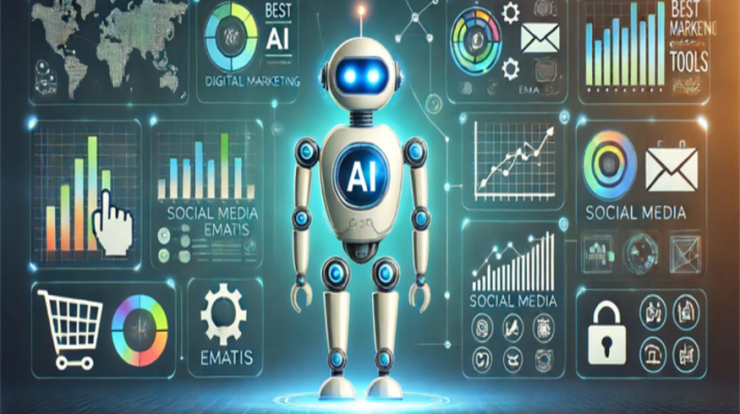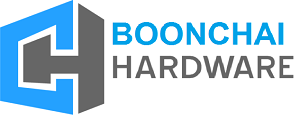
Artificial intelligence (AI) has revolutionized the marketing world, offering tools that can automate workflows, deliver personalized customer experiences, and optimize campaigns for better results. Whether you’re launching a digital ad campaign, creating content, or managing customer relationships, AI marketing tools can make your efforts more efficient and effective.
This blog dives into the top AI marketing software categories, showing how these tools can help streamline your campaigns and maximize impact. By the end, you’ll gain a clear understanding of how AI can enhance your marketing strategy.
Why AI Marketing Tools are Game-Changers
AI marketing tools bring predictive analytics, automation, and advanced insights into the mix, making data more actionable. Here are some key advantages of using AI in your campaigns:
- Efficiency – Automate repetitive tasks, freeing up your team to focus on creative strategies.
- Personalization – Deliver hyper-targeted messages based on user behavior and preferences.
- Data Optimization – AI algorithms analyze vast datasets to uncover opportunities that human analysis might miss.
- Real-Time Adjustments – Respond swiftly to customer interactions and market trends for optimal results.
With these benefits in mind, let’s explore specific categories of AI marketing tools and how they can streamline your campaigns.
AI-Powered Content Creation & Optimization
Creating compelling content can be time-consuming, but AI marketing tools enable marketers to write, edit, and optimize content quickly. These tools analyze audience data to suggest relevant topics, craft headlines, produce written content, and even detect grammatical errors. Some systems can rewrite and improve copy for better engagement and SEO performance.
Additionally, AI tools for content optimization analyze how users interact with your content. They recommend adjustments to structure, keywords, and formatting to improve readability and search engine rankings.
How This Helps:
- Save hours on drafting content.
- Ensure text stays error-free and polished.
- Optimize engagement by tailoring content to audience preferences.
Use Case Example:
Imagine you’re crafting a blog. An AI tool could recommend headings, ensure your tone is ideal for the target audience, and identify underperforming sections based on audience feedback.
AI Tools for Social Media Management
Managing several social media platforms can be daunting, but AI simplifies it with features like automated scheduling, content suggestions, and performance tracking. By analyzing user data, AI tools predict the best posting times and content types to maximize engagement.
More advanced systems even use AI-driven analytics to gauge sentiment in comments or mentions, helping brands respond proactively.
Key Benefits:
- Post consistently without manual oversight.
- Interact with audiences more effectively.
- Create campaigns tailored to platform-specific trends.
Use Case Example:
If you’re running a social media campaign, an AI tool can determine the ideal time slots to post videos or tweets, helping you reach a larger audience systematically.
AI-Based Marketing Automation
Marketing automation has been around for a while, but AI takes it to a new level. These tools help segment audiences, send personalized email campaigns, and monitor performance with minimal human intervention. AI-driven systems can even nurture leads through customized workflows tailored to individual behaviors.
Top Advantages:
- Reduce manual labor in sending newsletters and follow-ups.
- Create targeted campaigns that resonate with specific audience segments.
- Easily track and adjust workflows based on real-time results.
Use Case Example:
Picture an e-commerce business. An AI marketing automation tool could recommend product discounts based on browsing and purchasing habits, sending personalized emails to encourage conversions.
AI-Enhanced Customer Relationship Management (CRM)
AI marketing tools integrated with CRM systems go beyond recording customer data — they interpret it. These systems identify buying patterns, predict customer needs, and provide proactive recommendations for sales strategies.
Chatbots are another valuable AI-driven function of CRM tools. They can engage with customers on websites, social platforms, or email, ensuring quick, personalized responses while collecting data on user preferences.
How This Impacts Marketing:
- Drive retention by predicting churn risks.
- Personalize follow-up communication.
- Track leads efficiently through the sales funnel.
Use Case Example:
For a SaaS company, AI-powered CRM can highlight deals likely to close based on customer behavior, enabling sales reps to prioritize high-value leads.
Influencer Marketing Through AI
Influencer marketing benefits greatly from AI, which identifies the perfect influencers for your campaigns. These tools analyze influencer profiles for audience demographics, engagement rates, and content relevance, ensuring alignment with your goals.
Additionally, AI tools assist in tracking the performance of influencer campaigns, providing metrics like reach, impressions, and conversions for data-driven decision-making.
Why It Matters:
- Select influencers who align with brand values.
- Monitor ROI from influencer campaigns in real-time.
- Reduce the guesswork behind influencer partnerships.
Use Case Example:
When launching a new product, an AI tool can recommend influencers based on overlapping audience characteristics, simplifying the collaboration process and driving meaningful results.
Predictive Analytics & Campaign Insights
Understanding data patterns and predicting trends are core functions of AI marketing software. Predictive analytics tools use historical campaign and consumer data to forecast outcomes like click-through-rates (CTR), conversion rates, and market trends.
By understanding these forecasts, businesses can enhance their decisions on budgeting, ad spend allocation, and campaign messaging — ensuring optimal ROI.
Key Features:
- Identify seasonal trends to time your campaigns effectively.
- Focus on the most lucrative demographics.
- Test and refine messaging before full-scale deployment.
Use Case Example:
For a retail business, predictive analytics can identify which products will sell more during holidays, enabling them to adjust inventory and promotional campaigns accordingly.
How to Choose the Right AI Marketing Tool
Finding the optimal AI marketing tool requires a balance between functionality and your business needs. Consider the following factors:
- Ease of Use – Choose user-friendly tools with intuitive interfaces so your team can adopt them seamlessly.
- Scalability – Ensure the tool can grow with your business, handling more complex tasks as needed.
- Integration – Opt for software that integrates well with your current tools, such as CRM or eCommerce platforms.
- Data Security – Confirm the tool complies with data privacy standards to protect sensitive customer information.
By selecting the right tool, you’ll not only streamline your marketing process but elevate your campaigns to achieve long-term success.
Unlock the Full Potential of AI in Marketing
AI marketing tools are reshaping how businesses interact with their target audience, craft campaigns, and generate results. From enhancing content to personalizing customer experiences, these software solutions provide endless possibilities for efficiency and innovation.
Start incorporating AI into your marketing strategy today, and prepare to see measurable improvements in performance, customer satisfaction, and ROI.
